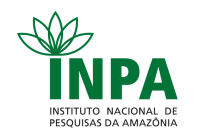Corpo Discente - Egressos
Paulo Victor Gomes Sales
| Título | EFEITO DA DESFOLHA EM SOJA (NA AMAZÔNIA LEGAL) SOBRE AS CARACTERISTICAS AGRONÔMICAS E QUÍMICAS DOS GRÃOS. | ||||||||||||||||||||||||
| Data da Defesa | 17/08/2018 | ||||||||||||||||||||||||
| Download | Em sigilo | ||||||||||||||||||||||||
Banca
| |||||||||||||||||||||||||
| Palavras-Chaves | Remoção; Soja; Proteína | ||||||||||||||||||||||||
| Resumo | A soja é uma espécie originária da Ásia, aonde essa cultura já vem sendo cultivada há centenas de anos. Devido à sua adaptabilidade a diferentes tipos de solo, condições climáticas, valor nutricional e potencial produtivo para indústria, o cultivo da mesma se expandiu por todo mundo. O Brasil, reconhecidamente uma das maiores potências agrícolas do mundo, é também o campeão mundial no uso de agrotóxicos, causando enormes impactos ambientais, além de aumentar o custo da produção. Sendo assim, a adoção de novas tecnologias ou medidas deve ser realizada com intuito de evitar ou reduzir o seu uso, onde muitas vezes é usado de forma indiscriminada no combate dos insetos praga da cultura. Em virtude da diversidade genética da soja e os impactos ambientais causados pela cultura o presente estudo está dividido em três capítulos: o primeiro capítulo, traz a importância econômica da cultura, bem como os impactos ambientais causados pelo agrotóxico, além de contextualizar o efeito da remoção de folhas nas características agronômicas da cultura. O segundo e o terceiro capítulo com o objetivo de se estudar os efeitos prejudiciais da desfolha nas características agronômicas e químicas de oito cultivares de soja submetidas à diferentes níveis de desfolha nos estádios R2 e R4 de desenvolvimento da planta, cultivadas em Gurupi-TO, na safra 2013/2014. As cultivares estudadas apresentaram comportamentos diferentes às desfolhas, sendo TMG 1288RR e STS 820 RR as mais tolerantes. Houve redução na produtividade de grãos a partir de níveis de desfolhamento de 66%. O controle de insetos desfolhadores poderia ser realizado a partir do estádio R2 com 33% de desfolha, o que evitaria o uso indiscriminado de agrotóxicos. As desfolhas promoveram alterações nos teores de óleo e proteína nos grãos em relação à testemunha. As cultivares CD2737 RR, para teor de proteína, e TMG1180RR, para teor de óleo, foram mais tolerantes à desfolha, sendo seus cultivos estratégicos do ponto de vista econômico e ambiental, principalmente com a redução de aplicações de defensivos agrícolas. | ||||||||||||||||||||||||
| Abstract | The soybean is a species native to Asia, where this culture has been cultivated for hundreds of years. Due to its adaptability to different types of soil, climatic conditions, nutritional value and productive potential for industry, cultivation of the same has expanded worldwide. Brazil, recognized as one of the world`s largest agricultural powers, is also the world champion in the use of agrochemicals, causing enormous environmental impacts, as well as increasing the cost of production. Therefore, the adoption of new technologies or measures should be carried out with the aim of avoiding or reducing their use, where it is often used indiscriminately in the fight against insect pests of the crop. Due to the genetic diversity of soybean and the environmental impacts caused by the crop, the present study is divided into two chapters: the first chapter brings the economic importance of the crop, as well as the environmental impacts caused by the agrotoxic use, besides contextualizing the effect of the removal of leaves in the agronomic characteristics of the crop.The second and the third chapter were carried out to study the detrimental effects of defoliation on the agronomic and chemical characteristics of eight soybean cultivars submitted to different levels of defoliation in the R2 and R4 stages, in Gurupi-TO, in the crop year 2013/2014 . The studied cultivars showed different behaviors to defoliation, with TMG 1288RR and STS 820 RR being the most tolerant. There was a reduction in grain yield from defoliation levels of 66%. Control of defoliation insects could be performed from the R2 stage with 33% defoliation, which would avoid the indiscriminate use of agrochemicals. The defoliation promoted changes in oil and protein contents in the grains in relation to the control. The cultivars CD2737 RR, for protein content, and TMG1180RR, for oil content, were more tolerant to defoliation, being their crops economically and environmentally strategic, mainly with the reduction of pesticide applications. | ||||||||||||||||||||||||
Parceiros

























